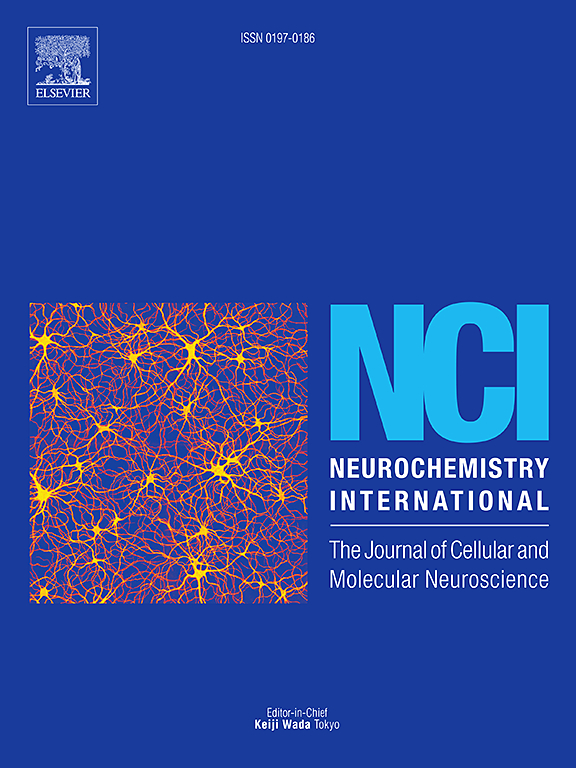(富含(多)酚的葡萄和蓝莓提取物通过调节肠道微生物群衍生的尿毒症毒素,防止 LPS 引起的血脑屏障破坏。
IF 4.4
3区 医学
Q2 BIOCHEMISTRY & MOLECULAR BIOLOGY
引用次数: 0
摘要
多)酚具有强大的抗氧化和抗炎特性,其动态保护能力已被不断报道。由于(多)酚具有改变肠道微生物群组成的能力,因此可能会通过调节微生物群-肠道-大脑轴来发挥(多)酚的进一步作用。然而,其基本机制仍未明确。在此,我们研究了富含(多)酚的葡萄和蓝莓提取物(Memophenol™)对慢性低度炎症模型(0.5 毫克/千克/周脂多糖(LPS),8 周)中微生物群-肠-脑轴的保护作用。给雄性 C57BL/6J 小鼠补充 Memophenol™ 可防止 LPS 诱导的微生物衍生尿毒症相关分子--硫酸吲哚酯(IS)和三甲胺 N-氧化物(TMAO)的增加。这些变化与肠道微生物群组成的变化相吻合,特别是隆氏酵母菌和脱硫酵母菌的丰度。在大脑中,LPS暴露破坏了内皮紧密连接ZO-1的边缘定位,并下调了ZO-1 mRNA的表达,下调程度与TMAO和IS水平密切相关;摄入Memophenol™可阻止这一过程。海马 mRNA 测序分析表明,摄入 Memophenol™ 后,神经退行性变调控通路的表达明显下调。这些发现可能表明,富含(多)酚的葡萄和蓝莓提取物通过调节肠道微生物的新陈代谢,对内皮紧密连接成分 ZO-1 起到了新的保护作用。本文章由计算机程序翻译,如有差异,请以英文原文为准。
(Poly)phenol-rich grape and blueberry extract prevents LPS-induced disruption of the blood-brain barrier through the modulation of the gut microbiota-derived uremic toxins
The dynamic protective capacity of (poly)phenols, attributed to their potent antioxidant and anti-inflammatory properties, has been consistently reported. Due to their capacity to alter gut microbiome composition, further actions of (poly)phenols may be exerted through the modulation of the microbiota-gut-brain axis. However, the underlying mechanisms remain poorly defined. Here, we investigated the protective effect of a (poly)phenol-rich grape and blueberry extract (Memophenol™), on the microbiota-gut-brain axis in a model of chronic low-grade inflammation (0.5 mg/kg/wk lipopolysaccharide (LPS) for 8 weeks). Dietary supplementation of male C57BL/6 J mice with Memophenol™ prevented LPS-induced increases in the microbe-derived uremia-associated molecules, indoxyl sulfate (IS) and trimethylamine N-oxide (TMAO). These changes coincided with shifts in gut microbiome composition, notably Romboutsia and Desulfovibrio abundance, respectively. In the brain, LPS exposure disrupted the marginal localisation of the endothelial tight junction ZO-1 and downregulated ZO-1 mRNA expression to an extent closely correlated with TMAO and IS levels; a process prevented by Memophenol™ intake. Hippocampal mRNA sequencing analysis revealed significant downregulation in regulatory pathways of neurodegeneration with Memophenol™ intake. These findings may indicate a novel protective role of the (poly)phenol-rich grape and blueberry extract on the endothelial tight junction component ZO-1, acting through modulation of gut microbial metabolism.
求助全文
通过发布文献求助,成功后即可免费获取论文全文。
去求助
来源期刊

Neurochemistry international
医学-神经科学
CiteScore
8.40
自引率
2.40%
发文量
128
审稿时长
37 days
期刊介绍:
Neurochemistry International is devoted to the rapid publication of outstanding original articles and timely reviews in neurochemistry. Manuscripts on a broad range of topics will be considered, including molecular and cellular neurochemistry, neuropharmacology and genetic aspects of CNS function, neuroimmunology, metabolism as well as the neurochemistry of neurological and psychiatric disorders of the CNS.
 求助内容:
求助内容: 应助结果提醒方式:
应助结果提醒方式:


